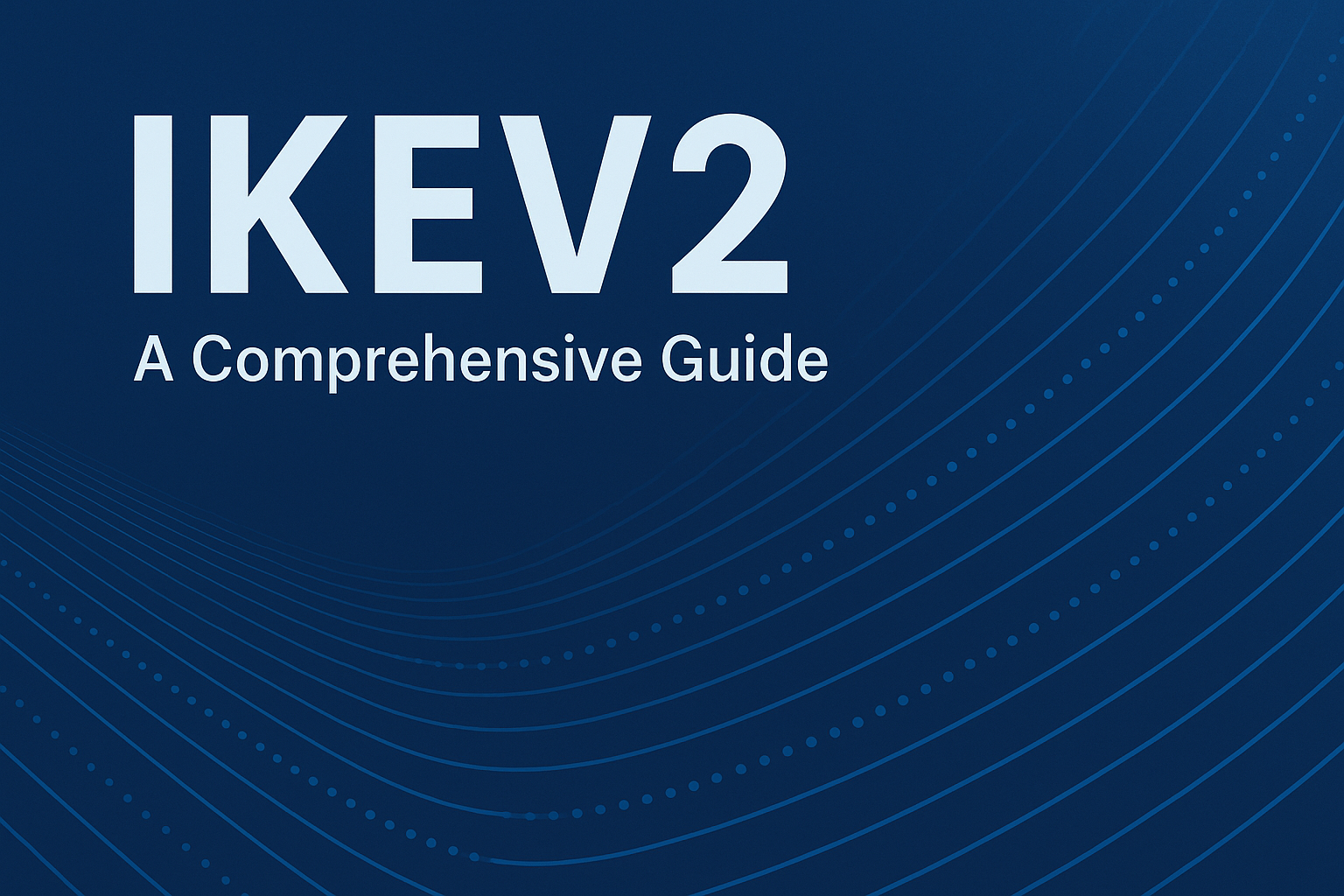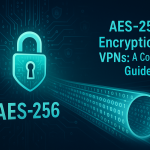Internet Key Exchange version 2 (IKEv2) is a VPN protocol that establishes and secures encrypted connections between devices and VPN servers. Developed by Microsoft and Cisco, IKEv2 is known for its speed, stability, and efficiency. It is widely used in mobile VPN applications due to its ability to quickly re-establish connections when switching networks, such as moving between Wi-Fi and cellular data.
Unlike older VPN protocols like PPTP or L2TP, IKEv2 is designed with strong security in mind, incorporating advanced cryptographic algorithms and robust authentication mechanisms. It is often paired with IPsec (Internet Protocol Security) to provide a complete VPN solution, ensuring encrypted data transmission across public and private networks.
How IKEv2 Works
IKEv2 operates as a key exchange mechanism within the IPsec framework. It establishes secure communication between a client and a server by negotiating encryption and authentication parameters. This process occurs in two main phases: the Security Association (SA) phase and the Authentication phase.
During the SA phase, IKEv2 sets up a secure tunnel between the client and server, agreeing on cryptographic algorithms and key exchange protocols. Once this tunnel is established, the Authentication phase follows, where both parties verify each other’s identities using pre-shared keys, digital certificates, or Extensible Authentication Protocol (EAP).
After authentication, IKEv2 dynamically manages security associations and encryption keys throughout the VPN session, ensuring continuous protection without requiring frequent renegotiation. This contributes to its high efficiency and stability compared to other VPN protocols.
Security Features of IKEv2
IKEv2 is known for its strong security capabilities, making it a preferred choice for VPN implementations. It supports AES-256 encryption, one of the most secure encryption standards available, providing robust protection against brute-force attacks. The protocol also includes Perfect Forward Secrecy (PFS), which ensures that even if one encryption key is compromised, past and future sessions remain secure.
Authentication in IKEv2 is handled using advanced cryptographic mechanisms, including RSA digital signatures and ECDSA (Elliptic Curve Digital Signature Algorithm). These authentication methods prevent unauthorized access and ensure the integrity of VPN connections.
Another critical security feature of IKEv2 is its resistance to network attacks. Unlike older protocols susceptible to man-in-the-middle (MITM) attacks and replay attacks, IKEv2 incorporates anti-replay mechanisms, ensuring that VPN data packets cannot be intercepted or modified in transit.
Performance Benefits of IKEv2
One of the standout features of IKEv2 is its speed and efficiency. The protocol is optimized for performance, enabling fast reconnections and minimal latency. Its streamlined handshake process reduces the overhead associated with establishing a VPN session, making it one of the fastest VPN protocols available.
IKEv2 is particularly well-suited for mobile users due to its ability to handle network transitions seamlessly. With built-in support for Mobility and Multihoming (MOBIKE), IKEv2 allows devices to switch between different network types (Wi-Fi, 4G, LTE) without dropping the VPN connection. This feature is essential for users who frequently move between networks, such as travelers or remote workers.
Additionally, IKEv2 consumes fewer system resources compared to protocols like OpenVPN. Its efficient processing and lightweight design make it an excellent choice for mobile devices, ensuring longer battery life while maintaining secure connections.
Comparing IKEv2 to Other VPN Protocols
When evaluating IKEv2 against other VPN protocols, it is important to consider factors such as security, speed, and adaptability.
Compared to OpenVPN, IKEv2 is generally faster due to its streamlined encryption process and reduced latency. However, OpenVPN offers better firewall evasion capabilities, as it can operate over both TCP and UDP and use obfuscation techniques to bypass VPN blocks.
In contrast to WireGuard, IKEv2 has been in use for a longer time and benefits from widespread support on various platforms, including Windows, macOS, iOS, and Android. WireGuard, while faster and more lightweight, is still undergoing security audits and lacks native support on some operating systems.
Compared to older protocols like PPTP and L2TP/IPsec, IKEv2 is far superior in terms of security and reliability. PPTP has numerous security flaws, while L2TP/IPsec has been criticized for its potential vulnerabilities. IKEv2 provides a much stronger alternative with modern cryptographic standards.
Limitations of IKEv2
Despite its many advantages, IKEv2 is not without limitations. One potential drawback is its reliance on UDP port 500, which can make it easier to detect and block on restricted networks. Some firewalls and network administrators may restrict UDP traffic, making IKEv2 less effective in environments with strict network controls.
Another limitation is that while IKEv2 is generally secure, its implementation plays a crucial role in its overall effectiveness. A poorly configured IKEv2/IPsec setup can introduce security weaknesses, making it essential to use well-configured VPN providers that adhere to best practices.
Additionally, because IKEv2 was developed by Microsoft and Cisco, some privacy-conscious users may prefer open-source alternatives like OpenVPN or WireGuard, which are subject to independent security audits.
Choosing a VPN with IKEv2 Support
Many premium VPN providers offer IKEv2/IPsec as one of their connection options, but not all implementations are equal. When choosing a VPN service that supports IKEv2, users should verify that the provider implements strong encryption standards, supports Perfect Forward Secrecy, and follows a no-logs policy.
It is also important to select a provider that has been independently audited to verify its security claims. Additionally, ensuring that the VPN includes features like a kill switch and DNS leak protection enhances overall privacy and security.
Conclusion
IKEv2 is a highly secure, fast, and reliable VPN protocol that excels in mobile connectivity and performance. Its strong encryption, seamless network switching, and efficient processing make it an excellent choice for users who prioritize speed and stability.
While it may not offer the same level of firewall evasion as OpenVPN or the simplicity of WireGuard, IKEv2 remains one of the most widely supported and trusted VPN protocols. For users looking for a balance between security and performance, IKEv2/IPsec is a solid choice when paired with a reputable VPN provider that enforces strict privacy policies and best security practices.



![T-Mobile VPN Access – Secure Mobile Browsing [year] 7 Best VPN for T-Mobile [year]: Secure & Fast Mobile Internet](https://vpntrends.org/wp-content/uploads/2025/02/Best_VPN_for_T_Mobile-150x150.jpg)

![Synology NAS VPN – Secure Remote Access [year] Synology NAS VPN – Secure Remote Access [year]](https://vpntrends.org/wp-content/uploads/2025/02/nordvpn-website-1024x441.jpg)
![TP-Link Router VPN – Best Secure Network [year] 7 Best VPN for TP-Link Router [year]: Secure Your Home Network](https://vpntrends.org/wp-content/uploads/2025/02/Best_VPN_for_TP_Link_Router-150x150.jpg)
![Netgear Orbi VPN – Fast & Secure Setup [year] 7 Best VPN for Netgear Orbi [year]: Fast & Secure Network](https://vpntrends.org/wp-content/uploads/2025/02/Best_VPN_for_Netgear_Orbi-150x150.jpg)

![Safari VPN – Secure Browser Extension [year] 7 Best VPN for Safari with Browser Extension & App [year]](https://vpntrends.org/wp-content/uploads/2025/02/Best_VPN_for_Safari_with_Browser_Extension___App-150x150.jpg)

